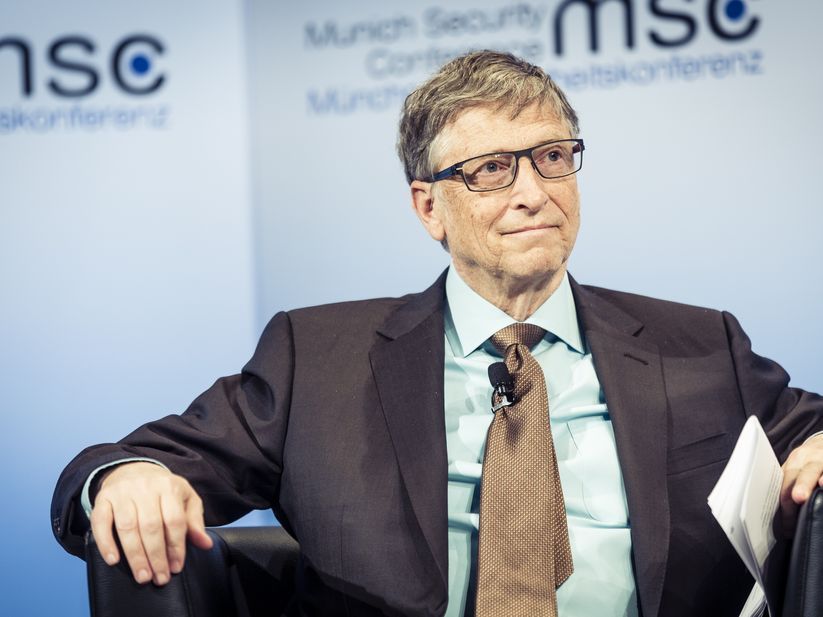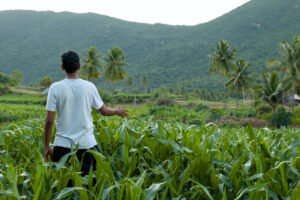Microsoft co-founder and philanthropist Bill Gates responded to questions about his farmland investments during an ‘Ask Me Anything’ (AMA) session on social media platform Reddit this weekend.
It’s the first time Gates has publicly commented on land purchases made by entities associated with him and his wife Melinda since they were named as the top private owners of US farmland by acreage earlier this year.
Gates was speaking to Redditors during an event marking the release of his new book, ‘How to Avoid a Climate Disaster.’
Responding to the question, “Hey Bill! Why are you buying so much farmland?” posed by one Reddit user, Gates indicated that seed science and biofuel development were major drivers of the acquisitions.
“My investment group chose to do this. It is not connected to climate,” he wrote.
“The agriculture sector is important. With more productive seeds we can avoid deforestation and help Africa deal with the climate difficulty they already face. It is unclear how cheap biofuels can be but if they are cheap it can solve the aviation and truck emissions.”
Back in January, US magazine The Land Report revealed that Bill and Melinda Gates have amassed the largest portfolio of private farmland in the US, comprising an estimated 242,000 acres.
This is part of a broader 269,000-acre land portfolio belonging to the couple and associated entities across 19 US states, with the largest holdings in Louisiana (69,071 acres), Arkansas (47,927 acres), and Arizona (25,750 acres).
A spokesperson for Cascade Investment — a firm chaired and controlled by Bill Gates, and possibly what he was referring to as “my investment group” on Reddit — declined to comment on specific land holdings at the time. However, they told The Land Report that Cascade is “very supportive of sustainable farming.”
The firm is a shareholder in plant-based protein companies Beyond Meat and Impossible Foods, as well as agricultural equipment maker John Deere.
Its single largest acquisition of farmland came in 2017, when it paid $520 million to purchase 61 properties from the Canada Pension Plan Investment Board (CPPIB). This parcel — which apparently makes up the bulk of the Gates’s farmland holdings — had previously belonged to Agriculture Company of America, a real estate investment trust acquired by CPIBB in 2013.
In January this year, the Bill & Melinda Gates Foundation announced that it’s creating a nonprofit entity called Gates Ag One which will seek to “speed up efforts to provide smallholder farmers in developing countries, many of whom are women, with access to the affordable tools and innovations they need to sustainably improve crop productivity and adapt to the effects of climate change.”
The Gates’ can create world’s biggest agrifoodtech testbed – but they’ll need to win over farmers first. Read more here.
Other questions put to Gates during his Reddit AMA session similarly touched on the sustainability of the agrifood system. One asked about the viability of seawater desalination to solve global water shortages.
“We have lots of water. The problem is that it is expensive to desalinate it and move it to where it is needed,” Gates wrote.
“The cost is prohibitive for agricultural use of water. New seeds can reduce water use but some areas won’t be able to farm as much.”
Gates was also asked which “niche technology” he believed could play a significant role in the battle against climate change.
“We need a lot of technologies – synthetic meat, energy storage, new ways of making building materials,” he wrote.
“We want to be open to ideas that seem wild.”
In an interview with MIT Technology Review last month, Gates argued that higher-income societies should completely replace their consumption of cattle-derived beef with “synthetic” alternatives.
“I don’t think the poorest […] countries will be eating synthetic meat. I do think all rich countries should move to 100% synthetic beef,” he said.
While he questioned if cell-cultured meat “will ever be economical,” he said that plant-based protein makers like Impossible Foods and Beyond Meat “have [a] quality road map and a cost road map that makes them totally competitive.”
How do you feel about the Gates’ owning so many of America’s farm acres? What do you think it could mean for the future of farming and food production? Join the conversation now on LinkedIn or Twitter, or email me at [email protected]





